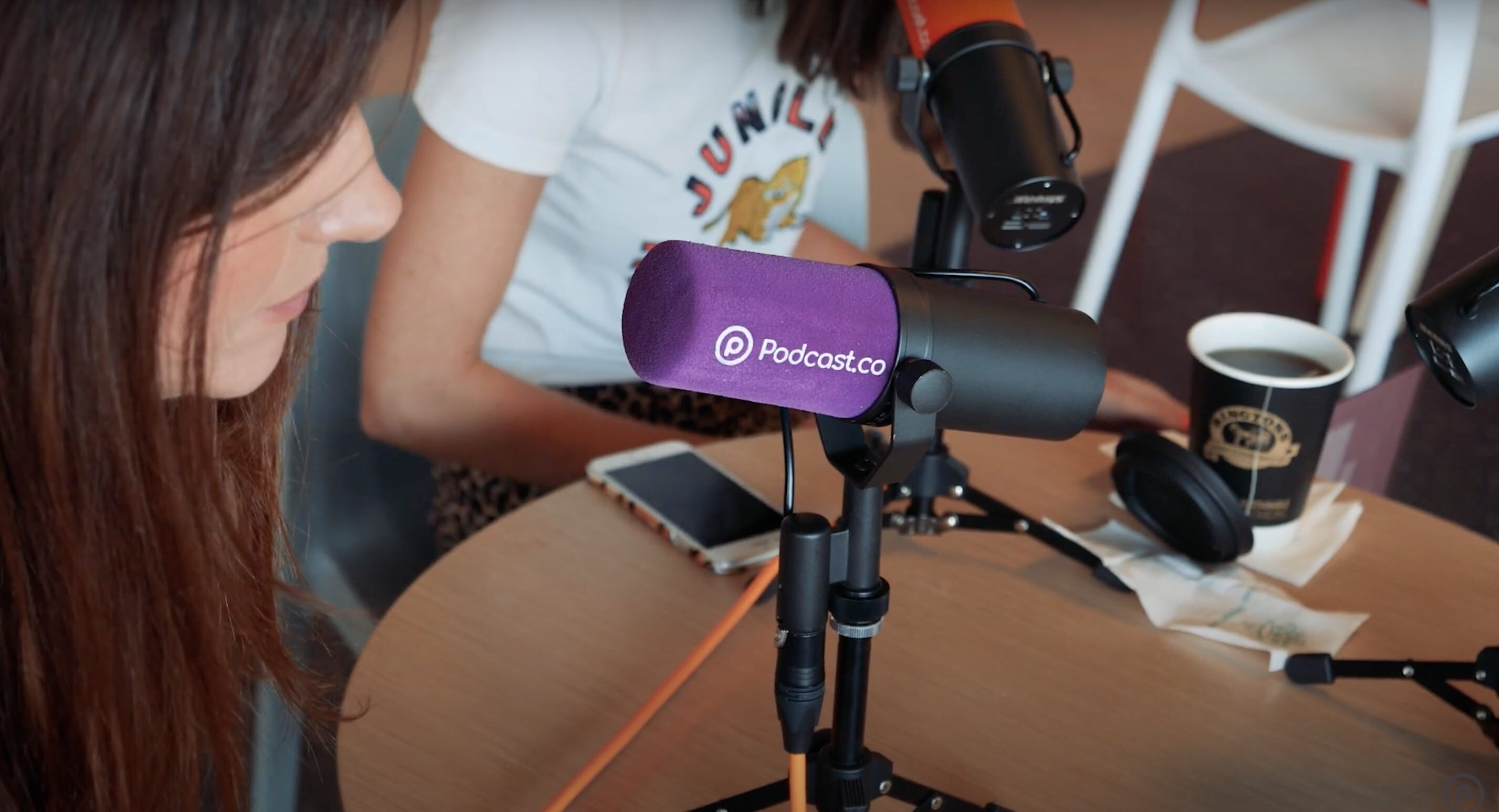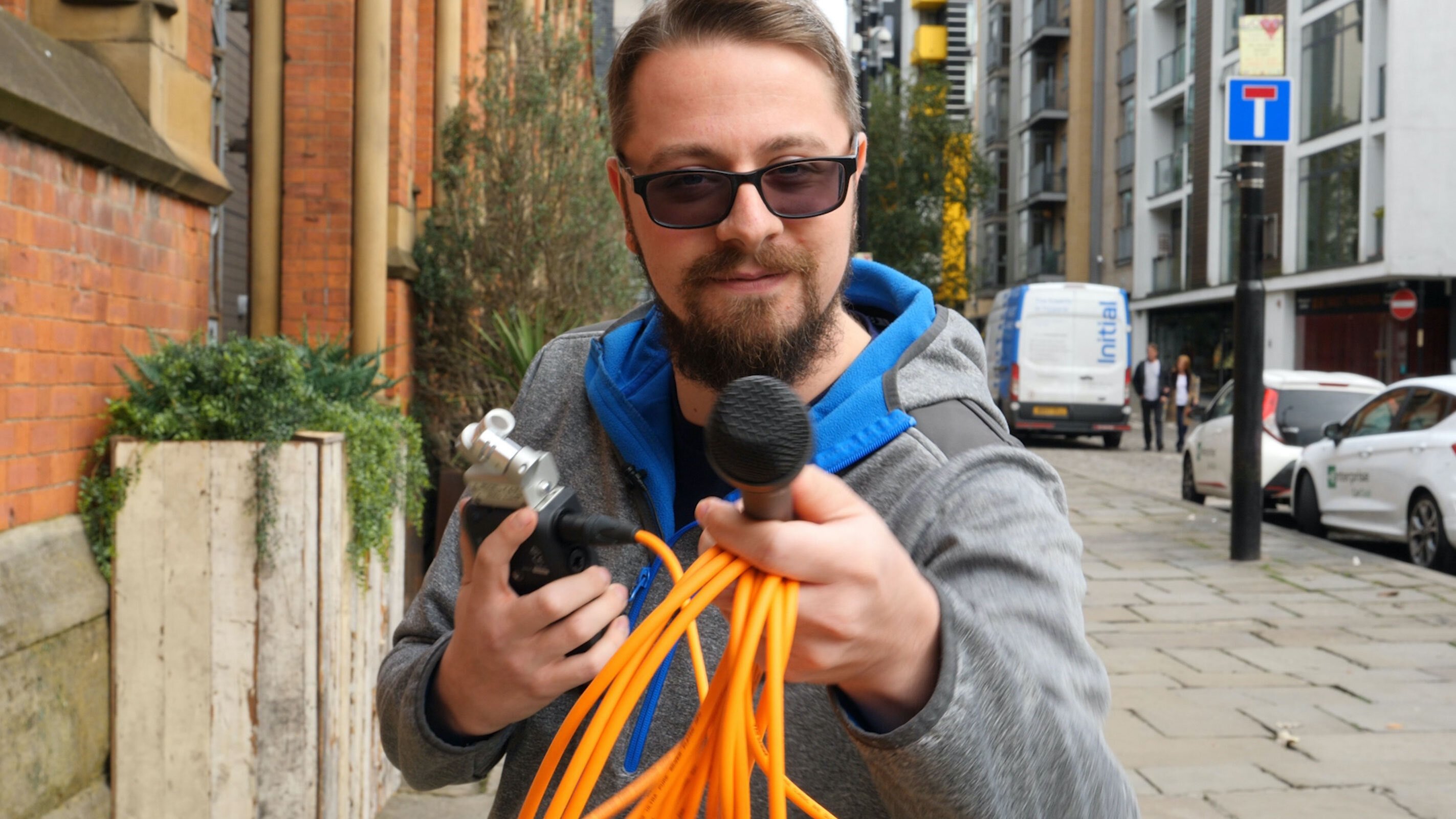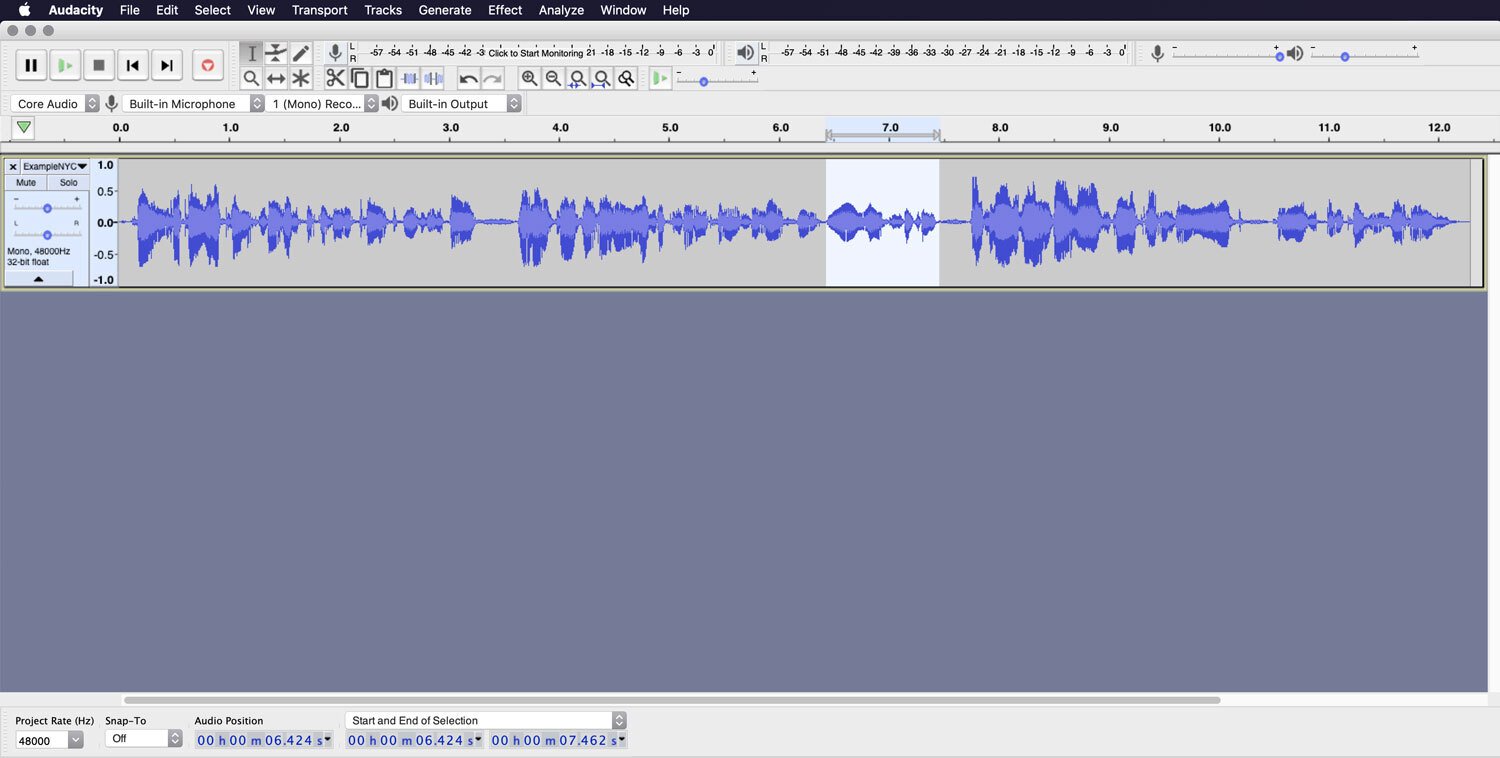Batch recording is a method of podcasting that makes the whole process more efficient, and less stressful. Instead of recording each episode in an individual session, you plan lots of episodes all at once and record them all in a single day during one long session.
But how do you know if it’s right for you? And how do you make it work?
In this article we’ll cover the key benefits of batch recording, how to tell whether batch recording is right for you, and how to use this method efficiently. So let’s dive in!
Why Batch Record Episodes?
Making a podcast can be genuinely exciting. That’s one of the reasons to start in the first place. But stressing about what to talk about each week, or when you’ll find time to record can really suck the fun out of it. If you’re not organised, it can become something you start to dread each week. If that’s the case, you probably won’t stick with it for very long.
Batch recording makes planning and sticking to a schedule much easier.
Batch recording could be the solution that solves those problems. It makes planning and sticking to a schedule much easier. And if you suddenly have a life crisis, or just a week where all you want is a break from more work, you’ve already got your episodes lined up and ready to go. It gives you more flexibility with your workload between each recording session.
If you’ve got all your episodes ready well in advance, you’ll never have to face the choice between rushing an episode last minute or skipping a week in your podcast schedule. You’ll put out quality episodes consistently, which is one of the key things when it comes to driving audience growth.
Batch recording episodes is also a pretty great time saver. You’ll find you get into a real flow, and get quicker at actually recording as you get more efficient. This is something attested to by Heather Osgood, founder of True Native Media, a podcast advertising agency. Here’s how she summed up her own batch recording process:
“My go-to process for my podcast is pretty simple. But I struggled to do it in the very beginning until it became a habit.
Create everything in bulk for the month.
Step 1 - Batch create my episodes for the month
Step 2 - Then the show notes
Step 3 - After that audiograms and videos
Step 4 - Then the copy for all the social posts
Step 5 - Finally the Blog posts - if I decide it’s relevant.
This takes about 5 hours in total, but then I have all my marketing content for the entire month and I set some of it up in a scheduler and others I post natively.
It takes the pressure off to try and create something every day. My content is better when I follow this process.”
For podcasters like Helen who are pressed for time, batch recording is becoming an increasingly popular production method.
Who is Batch Recording Great For?
How do you know if batch recording is right for you? Well, if a few of the criteria below apply to your show, you might be ideally suited for this method of podcasting.
Your Podcast Episodes Connect Together
If your episodes lead on from each other, batch recording is a great way to make sure they flow well together. Having what was discussed previously fresh in your mind as you record the next episode makes it easier to segue seamlessly between topics and themes.

Your Content is Evergreen
Batch recording is perfect for evergreen content.
Do your podcast topics stay relevant for months after you’ve talked about them? If you’re not restricted by a need to keep up with trends that come and go, batch recording could be great for you.
You Have Co-hosts
It can be a mission in itself to schedule recording time if you and your co-host operate on different schedules. Batch recording could really help you out. If you’re recording lots of episodes in one day, you’ll face the battle with calendars much less often than if you have to find a new date and time to record every time you want to put an episode out.
You Don’t Have a Permanent Recording Set-up
Batch recording can save you lots of time setting up equipment and dismantling it again every time you record. Instead of going through the whole process for every single episode, you’ll have to do it once for a full day of recording, saving lots of hassle.
You Record on Location
Similarly, if you record in certain locations, it might make sense to get lots of episodes done while you’re set up there.

Why Batch Recording Might Not Be For You
While it has its advantages, batch recording isn’t for everyone. If any of these points apply to you or your show, you might want to hold off on the batch recording method.
You’re New to Podcasting
If you’re a relatively new podcaster, you might find batch recording a bit overwhelming. It requires a lot of stamina, and you need to keep your energy up throughout a long period of recording.
It might be wiser to go more slowly at first, at least till you find your feet. That way you don’t have to commit to a certain style or direction for lots of episodes all at once. You can figure out what works best for your show through trial and error, one episode at a time.
Your Content is Topical
Batch recording doesn’t work for news or current affairs.
If your content relies heavily on keeping up to date with current information, batch recording isn’t going to work. Releasing an episode talking about news that happened five weeks ago probably isn’t going to be that relevant for anyone listening.
You Use Audience Feedback Frequently
If you regularly answer listener questions or interact with your audience during episodes, that might not work so well if you batch record. Feedback from your audience could potentially become outdated very quickly. Your audience might think you’re not properly up to date on their opinions, or even worse, that you’re ignoring their latest string of questions and comments.
How to Batch Record Podcast Episodes Efficiently
If batch recording sounds like a good fit for you and your podcast, here’s how to do it:
1. Schedule
First thing’s first, you should block out a day in your calendar to record. Make sure you put it far enough away that you’ve got plenty of time to prepare. Setting a date a week or two in advance should give you enough time to work with.
For recording with lots of guests on the same day, make it clear in your correspondence that timing is tight and they should be on time or risk not being able to record. Leave at least half an hour between each guest to make sure you’re not constantly rushing.
2. Plan
It’s time to plan out your episodes. The beauty of batch recording is you can see the big picture. You can make sure the sequencing of your content works nicely and has a coherent flow.

Write episode outlines or scripts, or if you have guests, research them thoroughly. Consider putting in more detail than you usually would. Batch recording can get pretty exhausting and you might have less brain capacity to think everything through on the day. So the more work you put into prepping now, the easier it will be.
If you fail to do the proper groundwork before your scheduled recording day, you’ll struggle to get everything done in time. You shouldn’t be mapping out your content outline right before turning on your mic.
3. Record
Close your emails and turn your phone off to stay focused. You should maintain a good pace, but don’t rush through to get to the end. Your audience will notice if you try to cut corners.
If you find your energy levels dropping, take a quick break and come back to it. You might find batch recording really tiring at first, but you’ll get the hang of it as you get more practice.
4. Edit
It’s a good idea to factor in time for editing in a batch session soon after you’re done recording, while the topics are still fresh in your mind. This means you’ll get the vast majority of the work done in one day. You might want to record everything in the morning, and progress to editing in the afternoon.

5. And Repeat!
Pat yourself on the back for a job well done. But don’t lose momentum here. It’s a good idea to book in your next recording session as soon as you’re done with this one. This will help you keep organised and motivated to stay on top of your podcasting schedule.
Conclusion
There you have it, all you need to figure out whether batch recording is for you, and how to do it in the most efficient way possible. Time to set a date and get ready to step behind the mic. Good luck!
For our full, comprehensive guide on how to start a podcast, click here.









